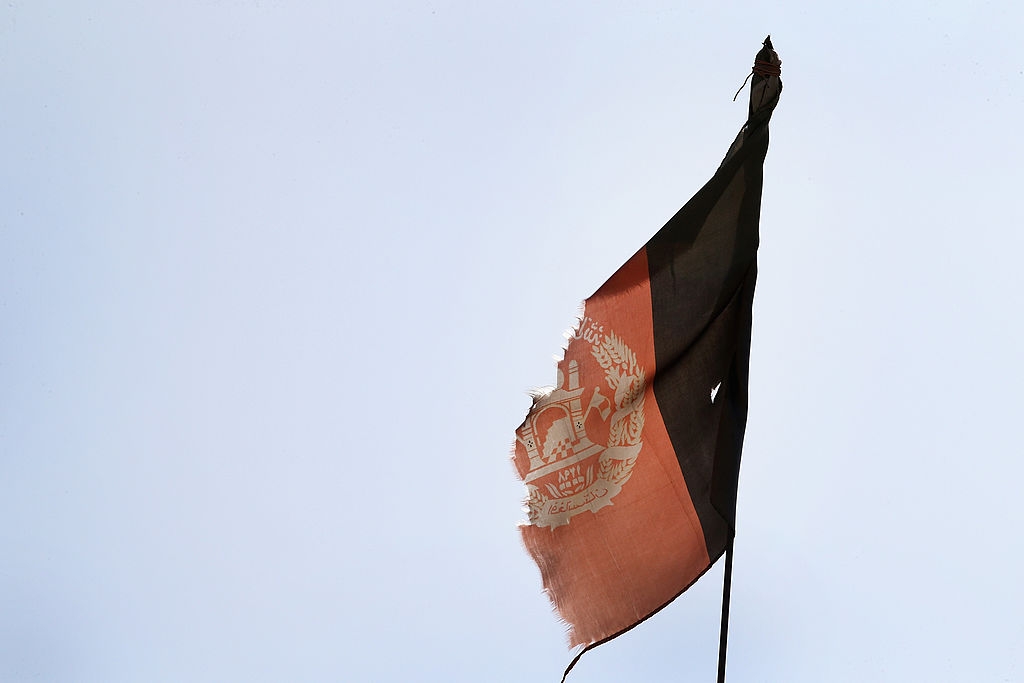To understand how Afghanistan is going to change in the future, you have to first understand what the ‘Islamic Republic’ established by the United States was like. Even before the Taliban took over, Afghanistan’s democracy had been deteriorating for some time, with three presidential elections in a row ending in bitter controversies over vote rigging, manipulation and fraud on a massive scale. The parliamentary elections attracted less attention but were no less controversial. Voter participation had declined constantly and in 2019, when the latest elections were held, turnout probably did not exceed 10 per cent, although it is hard to know the exact figure.
Persistent insecurity and high levels of corruption weakened the legitimacy of the Republic. From the start, it resembled an oligarchy. The original Bonn agreement, which created the new Afghan state, allowed its signatories, that is the main anti-Taliban factions and personalities, to effectively operate outside the law.
The Islamic Republic was never meant to be socially inclusive, nor very democratic. The social activists and small grassroot organisations which had managed to survive the Taliban’s reign were relentlessly harassed by the new Afghan security services and were often driven into oblivion in the Republic’s early years. Only rather innocuous NGOs, which catered mainly for an international audience, thrived alongside the oligarchs and their local allies in the villages. The system of government adopted in 2003 was inclined towards autocracy, and concentrated all power in the hands of the president.
Afghans have little to lose in terms of political rights with the change of regime
The Islamic Republic was, however, more socially liberal than any previous period of Afghan history. Women had more rights than they had ever enjoyed, human rights were at least in principle protected, and some religious and ethnic monitories, such as the Hazaras and the Shi’as, no longer faced persecution from the state. These rights – especially when it came to gender and human rights – were never fully realised across the country, in part because of a lack of state capacity and in part because of a lack of political will. Still, a substantial portion of the population eventually benefited from these reforms. Unprecedented access to education, albeit of low quality, allowed widespread social advancement.
The new regime that the Taliban are setting up appears set to be a coalition between the Taliban and a number of Islamic groups of various tendencies. A formal ‘electoral’ system will likely be put in place, including a constitution, possibly based on that of 1964, and some other formal trappings of a democratic regime.
The new regime is not likely to shine when it comes to democratic credentials, to say the least, but the impact of this should be limited, because the majority of Afghans have little to lose in terms of political rights with the current change of regime. They were not really empowered when the Taliban were ousted, and they lost much of what they thought they had obtained later.
The partial loss of social, gender and minority rights will have a much greater impact. The professional middle class, which remains small but which has expanded dramatically after 2001, are likely to be hurt hardest by the new regime. Even if the Taliban follow up on their promises to have softer policies on gender rights, for many women, especially those who are educated, the loss will still be hard to bear. Because of their internal ideological constraints and their rural ethos, the Taliban can only concede so much ground on this front.
For the Taliban, addressing minority rights is likely to be easier, even if suspicion of the Taliban runs deep within the Shi’a and Hazara communities (which overlap to a considerable extent). The Taliban reached a preliminary agreement months ago with Karim Khalili, one of the main Hazara political leaders, and very recently it seems they reached some understanding with another leader, Haji Mohaqqeq. Although within the Taliban’s rank and file there has always been hostility towards Hazara, as is common among Pashtuns in Afghanistan, the Taliban’s leadership have stayed clear of endorsing that hostility. On the contrary they have tried to prevent anti-Hazara behaviour among their troops. A small number of Hazaras have even joined the ranks of the Taliban. Some other minorities that were discriminated against, especially before 1978, such as the Uzbeks of Afghanistan, are well represented among the group.
You would not even dream of the Taliban showing any concern for LGBT rights in Afghanistan; the Islamic Republic had very homophobic legislation already and the Taliban will definitely not improve on that. Some religious minorities, which were already persecuted under the Islamic Republic, such as Christians and Baha’is, will now be forced to remain well hidden.
Ultimately, in the long run the fate of many of these rights and hallmarks of social development will depend on the viability of a functioning state in Afghanistan. It is hard to guess now what the future might harbour as a result of coalition-making between different strands of political Islam in Afghanistan, but the Taliban will have to develop their own state-building approach. The new leaders of Afghanistan have one advantage already: the last Republic set a low benchmark of success.






Comments